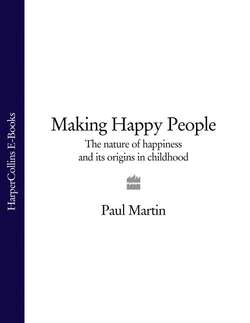Читать книгу Making Happy People: The nature of happiness and its origins in childhood - Paul Martin - Страница 10
More than pleasure
ОглавлениеEquating happiness with pleasure has been a common error throughout history. Across the centuries, various sages, politicians and gurus have preached that the ultimate aim in life should be the pursuit of pleasure and the avoidance of pain.9
In eighteenth- and nineteenth-century Britain, for example, Jeremy Bentham and like-minded utilitarian philosophers championed a world view that made happiness synonymous with pleasure. Bentham, whose stuffed remains are still on display in University College, London, regarded pleasure as the ultimate arbiter of right and wrong, and argued that playing pub games was just as good as composing a symphony if it produced the same amount of pleasure. He famously asserted that ‘the greatest happiness of the greatest number’ should be the supreme criterion for morals and legislation. Bentham even tried to devise objective methods for measuring the greatest happiness of the greatest number using his ‘felicific calculus’, but the task was beyond him.
Twenty-first-century attitudes are not vastly different, in that many people are still inclined to focus on pleasure rather than satisfaction when thinking about happiness. This mindset, which evaluates happiness in terms of feelings rather than thoughts, lies at the heart of our consumerist ‘me’ culture, and it starts early in life. Young children readily discover the immediate fix that comes from a pleasurable experience like eating chocolate or watching TV. Satisfaction is more elusive, since it requires thinking, effort and a certain amount of patience. Children can all too easily develop a lifelong habit of relying on short-term pleasures rather than learning to attain satisfaction. As we shall see later, a child’s ability to resist the desire for instant gratification, in return for greater benefits at a later time, is a good predictor of subsequent happiness and success.
Now, there is certainly nothing wrong with pleasure: personally, I am in favour of having as much as I can get. One of the simplest and most reliable ways of making yourself feel better, at least for a while, is to do something you enjoy. For many people, listening to music is a reliable way of eliciting powerful sensations of pleasure and relaxation. Research using brain-scanning techniques has revealed that pleasurable responses to music are mediated by the same regions of the brain that respond to other pleasurable stimuli including sex, food and recreational drugs.10 Listening to music can also ease anxiety and induce a physiological relaxation response, which is why music therapy has been used successfully for many years to help patients suffering from painful medical conditions.
But, as I have said, there is more to happiness than pleasure. William James, who was one of the founders of modern psychology, put it like this: ‘If merely “feeling good” could decide, then drunkenness would be the supremely valid human experience.’ It’s good to feel – but it’s also good to think. After all, thinking is one of the hallmarks of being human. A life built on pleasure alone can be empty and one-dimensional – a life for grazing animals, as Aristotle scathingly described it. Taken to excess, the Pleasant Life can be self-destructive and unhappy. Elvis Presley and the Marquis de Sade reportedly lived lives rich in pleasurable sensations and the gratification of physical appetites, but not everyone would regard their later years as enviably happy in the broader sense. At the other end of the spectrum, saintly figures have lived lives rich in self-sacrifice and satisfaction but rather short on pleasure. There is something to be said for a happy life built on generous measures of both.
